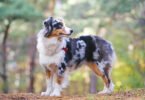The Beagle: A Spirited Hound with a Nose for Adventure
The Beagle, with its distinctive appearance, friendly demeanor, and remarkable sense of smell, is a breed that has charmed dog enthusiasts for centuries. Known for its small to medium size, expressive eyes, and ears that hang low, the Beagle is both an affectionate companion and a skilled scent hound. In this exploration, we delve into the history, characteristics, and the delightful qualities that define the Beagle.
Origin and History
The Beagle’s history can be traced back to ancient times, with ancestors of the breed believed to have existed as early as Roman times. The modern Beagle, however, has its roots in England, where the breed was developed as a small hunting hound. Its name is thought to derive from the French word “beugler,” meaning “to bellow,” which aptly describes the breed’s distinctive howl.
Beagles were selectively bred for their keen sense of smell, stamina, and adaptability in hunting small game, particularly rabbits and hare. The breed’s compact size and friendly disposition made it a popular choice for hunters, farmers, and families alike.
Physical Characteristics
Beagles are small to medium-sized dogs with a well-proportioned build. They have a distinctively domed head, a short muzzle, and large, expressive eyes that convey a friendly and inquisitive expression. One of the most iconic features of the Beagle is its long, droopy ears that frame the face, known for their effectiveness in trapping scents during hunting.
The breed’s coat is short, dense, and weather-resistant. Beagles come in a variety of color combinations, with the most common being tri-color (black, white, and tan), bi-color (two of these three colors), and lemon (light tan and white). Their tail is moderately long and carried high, adding to their overall appearance of alertness and energy.
Temperament and Personality
Beagles are known for their friendly and outgoing nature. They are sociable dogs that generally get along well with children, other dogs, and even strangers. The breed’s playful demeanor and curiosity make them excellent family pets, and their adaptability means they can thrive in various living environments.
While Beagles are affectionate, they are also known for their independent streak. This trait, coupled with their strong sense of smell, can sometimes lead to moments of stubbornness, particularly when they catch an intriguing scent during outdoor activities. Positive reinforcement and consistency are key elements in training Beagles, and early socialization helps ensure a well-mannered adult dog.
Intelligence and Trainability
Beagles are intelligent dogs with a strong instinct for scent tracking. Their ability to pick up and follow scents makes them excellent hunting companions, but it can also pose a challenge for training, especially in environments with distracting smells. Basic obedience training, starting from a young age, is crucial to help channel their energy and curiosity in a positive direction.
Beagles are motivated by food, so treats and rewards can be effective training tools. However, it’s important to note that they have a keen sense of smell, and their noses may sometimes lead them to become easily distracted during training sessions. Patience and consistency are key when working with this spirited breed.
Exercise Needs
Beagles are an active breed that requires regular exercise to keep them physically and mentally stimulated. Daily walks, playtime, and activities that engage their sense of smell, such as scent games or nose work, are essential for their well-being. Beagles also enjoy interactive play with their owners, making them excellent companions for individuals or families with an active lifestyle.
Their hunting heritage means they have a strong desire to explore, so providing a secure and fenced outdoor space is advisable. Beagles are known for their strong noses and can easily become engrossed in scents, so it’s important to supervise them during outdoor activities to ensure their safety.
Health Considerations
Beagles are generally a healthy breed, but like any dog, they may be prone to certain health conditions. Common concerns include hip dysplasia, ear infections (due to their floppy ears), and obesity. Regular veterinary check-ups, a balanced diet, and maintaining an appropriate weight are crucial for their overall health.
Their long ears, while charming, can trap moisture and debris, leading to ear infections. Regular cleaning and inspection of the ears can help prevent potential issues. Additionally, providing a well-balanced diet and monitoring portion sizes can help prevent obesity, a condition that can impact their overall health and quality of life.
Conclusion
In conclusion, the Beagle is a spirited and lovable breed that combines a friendly temperament with a keen sense of smell and a love for adventure. Whether participating in outdoor activities, engaging in interactive play, or simply providing affectionate companionship, the Beagle has a unique charm that endears it to individuals and families alike.
The Beagle’s history as a hunting companion has shaped its characteristics, making it an intelligent and curious breed with a love for exploration. With proper training, socialization, and regular exercise, the Beagle thrives as a delightful and loving member of the household, embodying the qualities that have made it a beloved breed for centuries.






